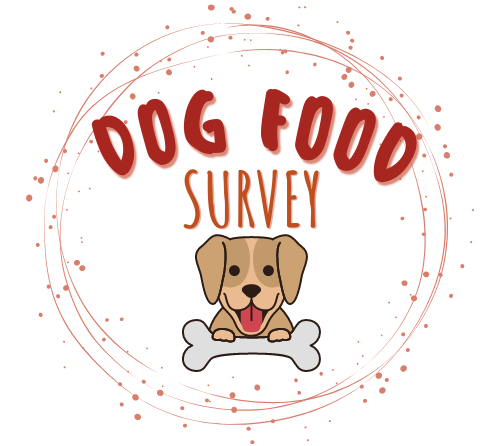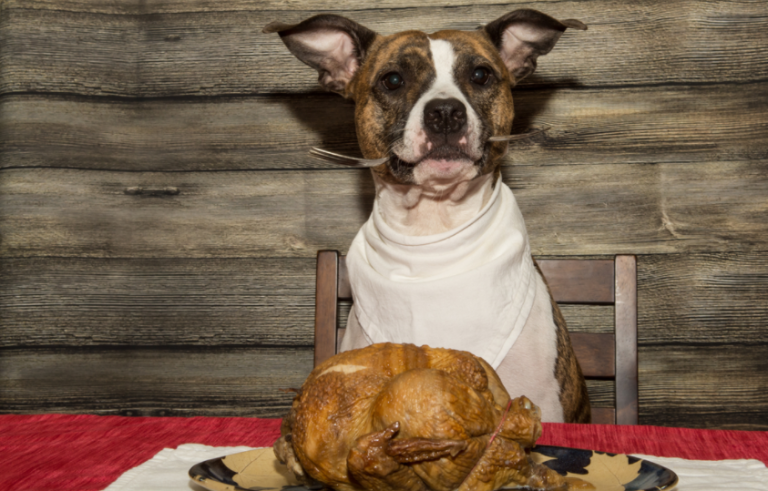If My Dog Is Allergic To Chicken Is He Allergic To Eggs
Table of Contents
Chicken is the most preferred meat in dog food because it is an economical product as compared to other ingredients like beef and lamb.
As a result, chicken may be found in various wet and dry dog food and dog treats. When your dog is ill, many doctors recommend feeding them a bland diet of chicken and rice.
But nowadays chicken allergies in dogs are common and dogs suffer dietary intolerances and sensitivities to poultry products such as chicken, turkey, and duck.
How chicken allergy developed in dogs?
To understand allergies, you must learn how a dog eats. Its digestive system turns food into amino acids. Enterocytes, a kind of white blood cell, absorbs these amino acids.
Allergy-prone dogs can’t fully digest chicken proteins. As a result, the immune system perceives it as an unwanted and potentially harmful diet. It will then deploy enterocytes to remove the chicken proteins.
Also, remember that chicken allergies can not occur overnight in dogs usually they develop with the passage of time. Chicken allergy also takes time and makes chicken protein for a dog an undesirable food. So allergic reactions are not likely to occur during the first time when your dog eats chicken.
If your dog may be reacting to the brand of chicken dog food rather than the chicken protein itself. In this case, altering your dog’s diet will help allergies to recover.

What are the common symptoms of chicken allergy?
Chicken allergies in dogs appear like other skin allergies. Early recognition of chicken allergy can save your dog’s life. Symptoms include:
- Significant itchiness around the face, ears, and mouth.
- Obsessive paw licking and biting. Scratching and licking cause hair loss, bald patches, skin discomfort, bleeding, and sores.
- Itching and scratching caused rashes, inflammation, and infections.
- Face pawing to relieve itching.
- Dogs head shook.
- Coughing and wheezing
- Scratching and/or licking its rear end.
- Vomiting, gas, and diarrhea.
If these allergies are not treated, it can cause Inflammatory Bowel Disease.
Why Your Dog Can Be Allergic to Chicken, But Not Allergic to Eggs
Thankfully, most dogs who are not allergic to chicken may eat eggs without any difficulty. Most chicken allergies are to the protein, not from the fat. Chicken fat is a popular component in dog food, and most chicken-allergic dogs can eat it.
While many dogs seem to be allergic to chicken, it is an excellent source of protein for dogs. Most dogs and pet owners prefer it over any other protein in dog food today! Foods like chicken are easy to digest and rich in Omega 6 fatty acids, which are beneficial for the skin and coat, but if your dog is allergic to chicken then add any other source of protein in your dogs’ diets.
Long term effects of food allergies in dogs
Untreated food allergies can lead to more significant health complications. Adverse reactions occur on dog health that leads towards steroid treatments and if not recover also cause secondary skin infections and a poor quality of life.
Allergies to foods don’t usually kill pets, but they do reduce their quality of life. “Itching all the time can seem like a thousand mosquito bites. While not as serious as organ loss, it can be stressful for the dog daily. ” So, when a dog is sick, you may see some of the above behavioral concerns. Diagnosis and treatment are critical to avoiding chronic skin and food allergies.
How to treat food allergies in Dogs
Canine food allergies are rare, accounting for just 10% of all dog allergies. Despite its rarity, a dog food allergy can be quite distressing if the real allergic component is not discovered and removed from the dog’s diet. You will need to consult with your veterinarian to give your dog a diet plan that will keep him healthy and free from various types of food allergies.
- Food allergies in dogs are treated by feeding a hypoallergenic diet for 8-12 weeks. This is the only way to confirm that your dog has a food allergy
- Hypoallergenic dog food brands that contain fewer food components and contain an unusual protein source, or are hydrolyzed to reduce allergic symptoms are more beneficial in these cases. The rationale is that a dog cannot be allergic to something it has never eaten before.
- Consult your veterinarian for taking advice about the best dog food for your dog. For a proper food experiment, over-the-counter foods are not suggested. During the trial period, flavored drugs, and human meals may have to be avoided.
- You can also use Cytopoint, Apoquel, or steroids that relieve to manage itching in dogs. These treatments are helpful in the period when you wait to see if a hypoallergenic food trial improves your dog’s allergy symptoms or not.
- It’s also beneficial to change your dog food diet to eliminate food allergies. Start slowly when modifying your pet’s food. Mix a small amount of the new food in with your pet’s old food and gradually increase the amount. An abrupt change might upset your pet’s stomach, and many dogs will reject a new dog food just because it is unfamiliar. Switching Your Dog To A Raw Food Diet can be beneficial.
- It’s also beneficial to get high-quality, American-made Dog food brands. Verify with your veterinarian first, and then read the labels on the food brand you’re buying. If you’re a new dog owner then do a proper search before buying any dog food.
- You can also get help from your pet nutritionist and veterinary doctor that gives you the best dietary choices for your pet. If you don’t have access to a veterinarian, another alternative is to purchase an online Pet Food Intolerance Kit.
- FOOD INTOLRANCE KIT enables you to send a hair sample from your pet to a lab for testing. While this is a new technology, it is a cost-effective screening option that many people are taking advantage of nowadays. As the guardian of your pet, you have the authority and obligation to help your dog deal with food allergies, whether you can avail an option of your vet doctor or taking help from the internet option.

Frequently Asked Question’s
1. What is a food allergy?
One of the most common allergies in dogs is a food allergy. An allergic dog’s immune system overreacts to any specific food element like chicken, producing antibodies to normally manageable substances. Antibodies are produced against a protein or a complex carbohydrate in an allergic reaction. Food allergies typically occur after long-term exposure to one brand, type, or usually using one type of meat regularly.
2. When does chicken allergy in dogs develop?
The allergy to chicken in dogs may occur at any age. Chicken allergies may also take place at one time and in any phase of your dog’s life. For instance, your dog may only acquire a chicken allergy at a younger age or also have a chance that chicken allergy occurs in the last phase of age when your dog becomes older and has gone.
3. Should You Feed Novel Protein to your dog?
Dog owners have a great choice of dog food with many kinds of a novel or exotic proteins. You can also find the best dog food that contains all kinds of fish, venison, duck, bison, and even more types of meats. Some veterinary experts recommend feeding your dog more common meat proteins unless he needs more novel meat proteins.
4. Will changing a dog’s diet trigger a food allergy?
An allergy to a food ingredient isn’t uncommon in the dog’s life. In addition to proteins, other substances and additives can cause allergies in dogs.
5. Is grain-free diets a good way to avoid or treat food allergies?
The most commonly reported food allergies in dogs are beef, dairy, wheat, chicken, and egg. Grains are not the most common cause of food allergies, but grain-free diets are benefiting dogs with suspected food allergies. Grains are also less common causes of dog allergy than animal products like meat.
6. Has diet rotation been a good way to prevent allergies?
Rotated dog foods every few months are also very beneficial for the dog’s health. Rather than being fed the same thing every day for the whole of their life. Rotating diet plans of dog food are gaining popularity as a new holistic approach. Rotating your dog’s food can improve your dog’s general health, but it must be done carefully to avoid stomach concerns.
7.How food allergies can be diagnosed without a blood test?
Without a blood test, a food allergy can be diagnosed by completing a 3- to 10-week rigorous diet elimination trial. The goal is to locate substances that have never been consumed by a dog suspected of having a food allergy. To detect a food allergy, strict diet elimination trials lasting up to 10 weeks are required. Despite their inaccuracy, many dog owners prefer simple blood or saliva allergy testing. Some pet owners also find it difficult to implement these treatments so move towards the option of blood tests.

Conclusion
We can safely consume eggs if our dog is allergic to chicken. In this article, We’ve discussed how insidious allergies are. Allergies are acutely sensitive and require time to develop.
Similar protein ingredients in your dog meals might also have different effects on your dog’s health. It sometimes may cause pain in your dog’s stomachs and in some cases, severe types of allergic reactions occur in dogs. Changing your dog’s diet regularly can help to prevent food allergies.
References:
- https://pets.webmd.com/dogs/guide/caring-for-a-dog-that-has-food-allergies#1
- https://vcahospitals.com/know-your-pet/food-allergies-in-dogs
- https://www.vetfolio.com/learn/article/food-allergies
- https://caminorealpetclinic.com/pdf/Deciphering%20Fact%20from%20Fiction%20-%20Allergies.pdf
- 1xbet официального Сайт Казино Игровыми Автоматами 1хбет - April 17, 2024
- Бездепозитные Бонусы За Регистрацию и Онлайн Казино 202 - April 9, 2024
- Yeni Deneme Bonusu Veren On Line Casino Siteler - January 31, 2024





